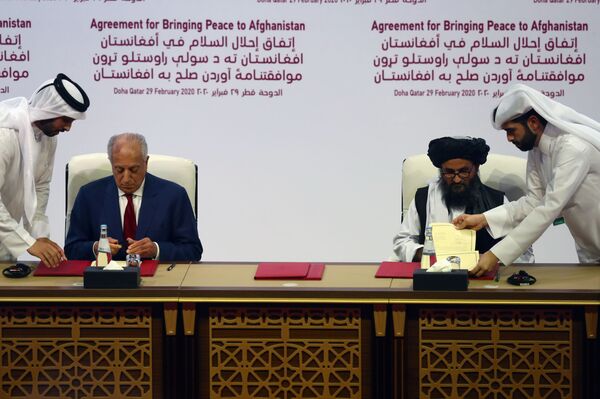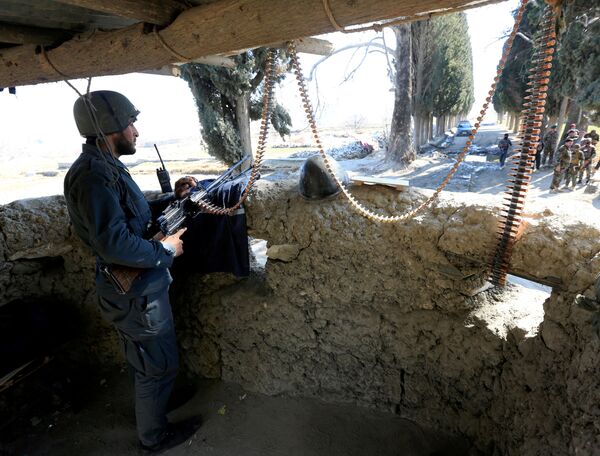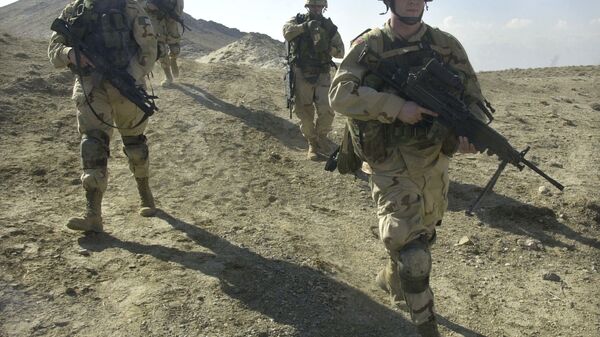US and Taliban officials signed a four-point agreement in Doha on Saturday, stipulating the complete withdrawal of US and NATO troops from Afghanistan over a 14 month period, including cutting troop numbers to 8,600 within 135 days’ time, and ending sanctions against the Taliban by August. In return, the Taliban is required to prevent areas of Afghanistan under its control from being used to threaten US national security, to commit to a permanent ceasefire, and to agree to intra-Afghan talks on establishing a stable peace by March 10. The potential landmark agreement follows a year-long effort of negotiations in Doha which began in February 2019.
Commenting on the significance of the agreement, J. Michael Springmann, a Washington-based political analyst and former State Department official, urged caution regarding the deal’s potential to end the 18+ year war.
“I think it is very unlikely that there will be a complete withdrawal of American soldiers, along with the other NATO soldiers that are operating still in Afghanistan,” Springmann said in an interview. “I think that their claims of reducing the 12,000 [US troops] down to 8,600 in roughly a third of a year, or 135 days, is essentially unrealistic. And the complete withdrawal within 14 months is, of course predicated on the Taliban living up to the agreement and to keeping its promises.”
Springmann recalled that “as we’ve seen with the Americans in the past, once they move into a country, they’re very, very reluctant to leave. We have American soldiers still in Germany and Japan, seventy five years after the [end of the Second World War], ostensibly to keep the peace and to fight terrorists and oppose the Russians and Chinese and who knows else.”
Pointing to Afghanistan’s strategic position, including the fact that the country borders Iran, the analyst said he believed US officials would try to find some pretext to stay. “I think they’re going to blame the Taliban for any kind of so-called terrorist action or terrorist groups operating in Afghanistan,” he said.
According to Springmann, the Taliban peace agreement is part of President Trump’s promise to get the US out of the “forever wars” in South and Southwest Asia, a commitment he has so far failed to live up to. In any case, the analyst stressed that in his view, “the best way to induce peace…is simply to get the American soldiers out of there and to let the country settle its own political differences themselves.”

Cautious Optimism May Be in Order
For his part, Dr. Robert Spitzer, a political scientist and US politics specialist, expressed cautious optimism regarding the Doha deal, suggesting that a US and NATO withdrawal will depend heavily on how events on the ground unfold.
“If relative peace is maintained during that time, then the timeline will likely be followed,” Spitzer said. “If not, however, US representatives have made clear that they are ready to reintroduce more American forces.”
Spitzer recalled that the US plan for withdrawal from Afghanistan has enjoyed bipartisan support, including support by most ordinary citizens. “It is Trump administration policy, and is one of the few Trump policies that has bipartisan support, although hawks in the Republican Party such as Senator Lindsay Graham are not happy with the deal,” the observer noted.
Commenting on the Doha deal Saturday, Senator Graham said that only “time will tell” if the agreement bears fruit. “I am very suspect of the Taliban ever accepting the Afghan constitution and honouring the rights of religious minorities and women,” Graham, a member of the Senate’s Foreign Relations Committee, said in a statement.

Longest War in US History
The US invaded Afghanistan in October 2001, ostensibly in response to the Taliban government’s sheltering of top al-Qaeda officials including Osama bin Laden, and has fought a Taliban insurgency ever since. The War in Afghanistan recently became the longest war in US history, and has cost Washington an estimated $2.14 trillion, and over 2,350 US military personnel’s lives. Hundreds of troops from the NATO coalition, over 62,000 Afghan security forces personnel and over 38,000 Afghan civilians have also been killed. The US conflict in Afghanistan is just a part of the country’s four decade-long war, which began in 1978 after a pro-Soviet government took power, prompting a CIA intervention and the funneling of billions of dollars in military and financial aid to Mujahideen jihadists. Moscow intervened a year later, sparking the decade-long Soviet-Afghan War. The pro-Moscow government held on until 1992, when it was defeated by the Taliban after Boris Yeltsin’s Russia cut off fuel deliveries. In the 1990s, the Taliban and other militias divided up the country, turning it into a failed state.
*A terrorist group outlawed in Russia and many other countries.



